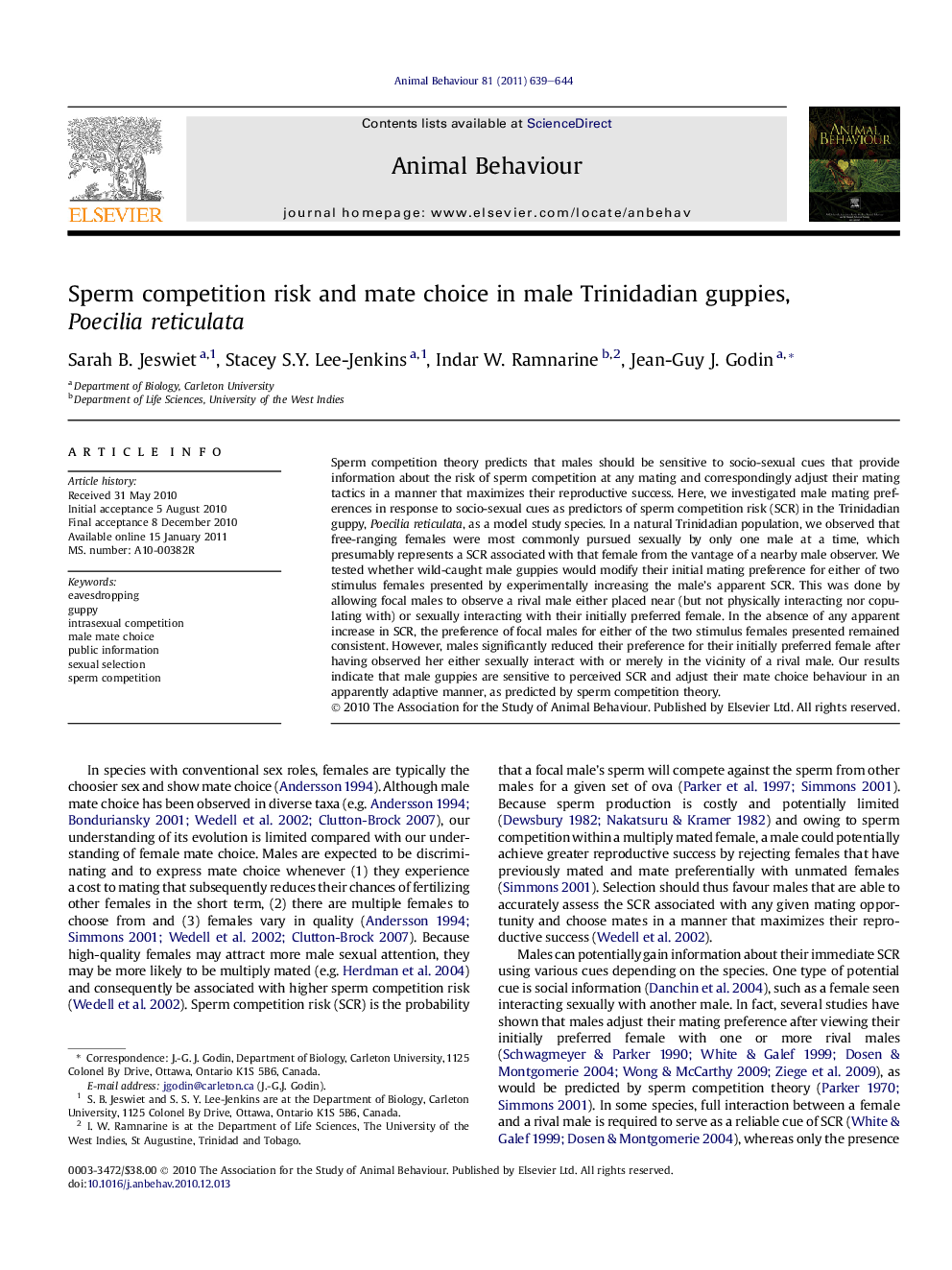| کد مقاله | کد نشریه | سال انتشار | مقاله انگلیسی | نسخه تمام متن |
|---|---|---|---|---|
| 2416815 | 1104298 | 2011 | 6 صفحه PDF | دانلود رایگان |

Sperm competition theory predicts that males should be sensitive to socio-sexual cues that provide information about the risk of sperm competition at any mating and correspondingly adjust their mating tactics in a manner that maximizes their reproductive success. Here, we investigated male mating preferences in response to socio-sexual cues as predictors of sperm competition risk (SCR) in the Trinidadian guppy, Poecilia reticulata, as a model study species. In a natural Trinidadian population, we observed that free-ranging females were most commonly pursued sexually by only one male at a time, which presumably represents a SCR associated with that female from the vantage of a nearby male observer. We tested whether wild-caught male guppies would modify their initial mating preference for either of two stimulus females presented by experimentally increasing the male’s apparent SCR. This was done by allowing focal males to observe a rival male either placed near (but not physically interacting nor copulating with) or sexually interacting with their initially preferred female. In the absence of any apparent increase in SCR, the preference of focal males for either of the two stimulus females presented remained consistent. However, males significantly reduced their preference for their initially preferred female after having observed her either sexually interact with or merely in the vicinity of a rival male. Our results indicate that male guppies are sensitive to perceived SCR and adjust their mate choice behaviour in an apparently adaptive manner, as predicted by sperm competition theory.
Journal: Animal Behaviour - Volume 81, Issue 3, March 2011, Pages 639–644